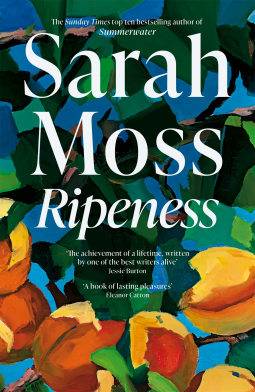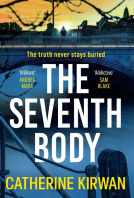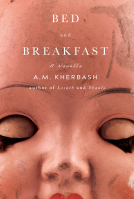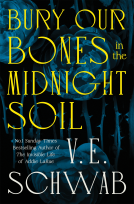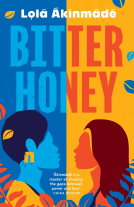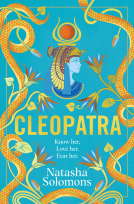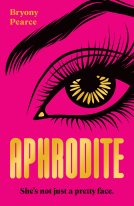Ripeness
by Sarah Moss
You must sign in to see if this title is available for request. Sign In or Register Now
Send NetGalley books directly to your Kindle or Kindle app
1
To read on a Kindle or Kindle app, please add kindle@netgalley.com as an approved email address to receive files in your Amazon account. Click here for step-by-step instructions.
2
Also find your Kindle email address within your Amazon account, and enter it here.
Pub Date 22 May 2025 | Archive Date 22 May 2025
Pan Macmillan | Picador
Talking about this book? Use #Ripeness #NetGalley. More hashtag tips!
Description
A stunning new novel of coming-of-age and growing old, from Sunday Times bestseller Sarah Moss
‘Her work is as close to perfect as a novelist’s can be’ The Times
'Throws much contemporary writing into the shade' Hilary Mantel
It is the 60s and, just out of school, Edith finds herself travelling to rural Italy. She has been sent by her mother with strict instructions: to see her sister, ballet dancer Lydia, through the final weeks of her pregnancy, help at the birth and then make a phone call which will seal this baby’s fate, and his mother’s.
Decades later, happily divorced and newly energized, Edith is living a life of contentment and comfort in Ireland. When her best friend Maebh receives a call from an American man claiming to be her brother, Maebh must decide if she will meet him, and she asks Edith for help.
Ripeness by Sarah Moss is an extraordinary novel about familial love and the communities we create, about migration and new beginnings, and about what it is to have somewhere to belong.
Advance Praise
Praise for Sarah Moss:
‘One of our very best contemporary novelists’ Independent
'A brilliant mind' The Guardian
'Moss has quietly been putting out some of the most interesting and carefully sculpted novels of recent years' Financial Times
'One of the finest contemporary writers working in Britain today' Stylist
'Is Sarah Moss the best British writer never nominated for the Booker?' Daily Mail
'Nothing escapes her sly humour and brilliant touch' Jessie Burton
'The most brilliant writer. She deserves to win all the prizes' Joanna Trollope
Available Editions
| EDITION | Other Format |
| ISBN | 9781529035490 |
| PRICE | £20.00 (GBP) |
| PAGES | 304 |
Available on NetGalley
Featured Reviews
 Irene M, Reviewer
Irene M, Reviewer
To start at the beginning, what a gorgeous cover. And what a wonderful book.
I was completely immersed in the narratives of both Edith at 17 and Edith at 70. Her relationships with everybody in the book are so beautifully described: her restless mother who lost her family to the concentration camps, her farmer father, her elder ballerina sister whose role is so central to the whole story, her lover Gunter, to name but a few.
The prose is precise, no wasted words, and descriptions are impeccable, and there are thousands of little details that I could completely relate to,
This is a timely novel for me as I research my family tree, finding one or two disturbing surprises, and as I wait for my DNA results. The big question in this novel is how much do we need to know about our ancestors, should we leave the past alone? I'm soon to find out, and in the meantime, thank you to the author for making me think harder about this subject.
There are some heart-wrenching scenes, happy moments, funny observations, and a completely satisfactory ending.
 Catherine J, Reviewer
Catherine J, Reviewer
I’m writing this review on Christmas Eve, which I think gives a good indication of how much I savoured this book and how much I’m now bursting to tell people about it!
The title has so many layers: luscious Italian fruit ready to be picked, sexual relationships among older adults (still not commonly portrayed in novels, still!), emotional maturity, coming-of-age, the peak of talent (in this case, as a professional ballerina) and the time warp that is the third trimester in pregnancy. I’ve read most of Sarah Moss’s fiction and non-fiction, and I keep returning because of the intellectual heft (worn lightly) of her work and the gorgeous prose. Highly, highly recommended!
 Wendy G, Reviewer
Wendy G, Reviewer
As I started to read this novel, it felt very unfamiliar Sarah Moss territory. We are in rural Ireland, with our female protagonist, Edith, now in her 70s and her lover, Gunter. It is a consumptive opening.
The story then rotates between her current life and her past life. The reader sees Edith's building blocks. Her nomadic French Jewish mother whose family were murdered in Belsen, her father, a Derbyshire farmer and her sister, a ballet dancer. With Moss' creative style the pieces are put in place gradually and her familiar tropes of feminism, the great outdoors, belonging and motherhood become evident. At some point I found "Night Waking" which I read many years ago, resonating.
I found the story, the contemporary attitudes and the rawness totally compelling. Moss brings her mastery of perspective to making a familiar story seem new. I thought it was fabulous.
With thanks to #NetGalley #PanMacmillan #Picador for offering me the opportunity to read and review
 Irene C, Reviewer
Irene C, Reviewer
What a delicious, unsettling ,thought-provoking book this is! It’s almost a duel-timeline story as Edith, in her 70-year-old present life, writes a letter to her lost but unforgotten nephew about the Italian summer when she was 17 and witnessed his birth and hurried adoption. There are so many lovely descriptions and touching moments, both in the past and the present. Sarah Moss has a deftness of touch and a beautiful way with words - Edith’s everyday musings on life, friendship, sex and death become almost poetic but also instantly recognisable. I rushed to read to the end of this book but savoured every page as well. Bravo Sarah Moss!
 Viv R, Reviewer
Viv R, Reviewer
This was a fantastic read. Beautiful yet sparingly written. Moss manages to convey the most exquisite emotions. The characters were interestingly created and I loved the way the story was told in two time lines. The story was intensely thought provoking and is highly recommended.
Ripeness by Sarah Moss is a beautifully layered exploration of family dynamics, identity, migration, and belonging. The book is set against two distinct timelines, one in the 1960s and the other in the present day, weaving together the past and present with deep emotional resonance.
The first timeline follows Edith, a young woman who, just out of school, is sent by her mother to rural Italy. Edith is tasked with helping her older sister, Lydia, a ballet dancer, through the final stages of her pregnancy. Her mother gives her strict instructions: to assist Lydia with the birth, make an important phone call, and seal the fate of both mother and child. The complexity of Edith’s role in this arrangement adds layers to her character, revealing her internal conflict as she navigates her responsibilities.
Decades later, Edith is happily divorced and content in Ireland, living a peaceful life. The second timeline introduces her best friend, Maebh, who receives a call from an American man claiming to be her half-brother. Maebh, uncertain about the truth of his claim, turns to Edith for support in deciding whether or not to meet him. This modern-day narrative brings Edith's past into sharper focus, particularly her emotional growth and the ways in which the past still shapes the present.
The writing style in Ripeness is distinctive and bold. Moss employs a stream-of-consciousness technique that eschews the use of inverted commas for dialogue, giving the narrative a fluid, almost dreamlike quality. At times, this approach can disrupt the reading flow, requiring the reader to pause and reread certain sentences to fully grasp their meaning. However, this unique style also contributes to the book’s thematic richness, inviting readers to interpret each sentence with care and to reflect on the complexities of the characters' thoughts and emotions.
The book's exploration of familial love is profound, delving into the connections we form with those closest to us, even when those bonds are complicated by the weight of decisions made long ago. It also addresses the concept of belonging, both in terms of family and the larger communities we inhabit. The themes of migration and new beginnings resonate deeply, as Edith’s journey in Italy contrasts with Maebh’s search for family in the present.
Ripeness is a book that demands patience and careful attention, but it rewards readers with its emotional depth and nuanced portrayal of family, identity, and the passage of time. While the writing style may not be to everyone’s taste, those willing to engage with its rhythms will find a story that lingers long after the final page. Highly recommended for readers who appreciate thought-provoking, character-driven narratives.
Read more at The Secret Book Review.
 Jill W, Educator
Jill W, Educator
I very much enjoyed this book as well as admiring it. It is both a coming of age novel as well as dealing with old age and new relationships in old age.
In the 60s Edith, aged 17, goes to stay with her pregnant sister (a ballet dancer) in Italy. Moss never explains or elaborates but we see Edith grow in understanding of adult relationships, childbirth and the joys or otherwise of caring for a small child, as well as the joys and sacrifices of professional ballet. The narrative evokes the heat and smells of Italy beautifully.
Aged 70 she is living in Ireland and in a new relationship. Once again her situation is conveyed through her thoughts and musings - how is it being the perpetual English outsider, no matter how long you have lived in Ireland, how is it having a younger lover?
Sarah Moss is a wonderful writer and I would definitely recommend this book. Many thanks to the publisher and Netgalley for a review copy.
 Shari B, Reviewer
Shari B, Reviewer
This magnificent book takes readers back and forth in time between rural Italy in the 1960s and rural Ireland in the present day as we read about Edith at different points in her life. Edith is a bookish person who grew up on a farm in England and is excited to have earned a place at Oxford University. Her father and grandmother, with whom she lives on the farm, are supportive even as some of the locals consider her a bit uppity. Her mother comes and goes (for understandable reasons) and is against her going to Oxford without taking a year off first to travel first to Italy, then to France, arguing that this would not only improve her language skills, but also give her a wider experience. She makes arrangements for Edith to stay with some friends in each country. Edith goes along with this plan, which gets derailed when she is sent to a villa to be with her older sister, who is unmarried and pregnant. The sisters are quite different--Edith is into words and books while her sister, Lydia, thinks and responds to things in dance. When the story moves to rural Ireland, we're with the 70-something Edith as she goes about the life she's built there, having moved to Dublin as a married woman and going rural at a later point in her life. The chapters of the book alternate between these two settings and to some extent, two Ediths. It's not that she's completely different, but as with all of us (hopefully) with age comes wisdom, often hard-earned, and we inhabit ourselves differently at different times of our lives. This is illustrated beautifully in this book, both in the characterization of Edith at these points in her life, but also in the structure of the book.
For instance, in the Italian sections, Edith is narrating and uses 'I' a lot. It's clear that she is explaining both the events that occurred and what she felt about them. In the Ireland sections, there's an omniscient narrator telling readers what Edith did, said, and thought about. It was an interesting contrast for me as I read. I felt almost like Edith was observing herself and sharing her observations. It's particularly interesting because of her status as a blow-in to rural Ireland. As she acknowledges, she will never completely fit in, will never truly belong--her interactions are almost all performative in some way. The latter is true for everyone to some degree, but as a blow-in to rural Ireland myself, and having been here for over a decade now, I've had time to see how much more it's the case now for me. I can also say that Sarah Moss captured the dynamics of a village in rural Ireland brilliantly, in my opinion. She was spot-on in her descriptions of the kinds of interactions that occur.
In addition to this being a gripping story, I could relate to so much in the book. Themes of belonging or not, who gets to be part of a community, what it means to be a family, what it means to be an immigrant, gender expectations, generational trauma, finding solace and joy in books, and so much more are woven together throughout this excellent book. I highly recommend it. 5 stars
 Tracy S, Librarian
Tracy S, Librarian
What a joyous read. The life and times of Edith were amazing, sad at times and very adventurous.
I loved how this was written in two timelines and they merged together giving the reader a richly descriptive and informative look in at Edith's life.
This book is just sublime and I loved it
I am a huge fan of Sarah Moss and this novel cements her reputation with me. The story quietly unfolds and the reader begins to understand what is at the nub of it without any pushy, showy, extraneous text. Family, loss, love, grief and growth are at the heart as always. The writing is sublime and I was entirely swept up with it. I wept and I hurrahed in places. It should be a massive success.
 Geraldine S, Educator
Geraldine S, Educator
Sarah Moss is a writer of beautiful stories and with Ripeness all of her writing skills are in place to create a multi-layered novel which reflects on many themes. The central character of the book is Edith and her story unfolds over two times and locations. In the mid 1960's 17 year old Edith (Dita) is living in Italy for the summer to help her elder sister in the final stages of her unwanted pregnancy. This part of the story, told in the first person, is interspersed with the third person narrative of current day 73 year old Edith living in rural Ireland.
73 year old Edith is a wonderful character whom I can see having as a friend. She lives a happy life, comfortable in her own skin. She has many female friends, enjoys open water swimming, yoga and walking. She has a male lover but he is just one part of her existence. She is happily divorced from the father of their only child, Pat. 17 year old Dita is just getting to know herself in Italy and has her whole life ahead of her. She is linguistically talented, literary, caring and, as with her older self, loves the outdoors. She feels somewhat in awe of her beautiful elder sister Lydia who is a ballerina.
Relationships and descriptions are key in this story. Through Edith and Lydia's relationship with their Maman who is a tormented restless woman seeking her roots as well as the sisters' relationship with the new born child in Italy, issues of motherhood, family, adoption and identity are explored. Cultural, religious and linguistic identity is also threaded throughout the book with Dita's use of A level Italian in Italy, the arrival of refugees in Ireland, the place of the Irish language in education and life, cultural Jewishness and cultural Catholicism. Edith's reflections on the dangers of forgetting history; the problematics of 'othering' those with different passports' languages and/or cultures and the possible unwanted outcomes of DNA testing are intertwined into the story without any suggestion of heavy handedness and certainly cause the reader to stop and think.
This is such a rich story that it is one I certainly want to read and digest again and will recommend to many of my friends.
Thanks to PanMacmillan via NetGalley for an ARC of this lovely book which I certainly recommend to readers who enjoy thoughtful fiction.
 Sass M, Media/Journalist
Sass M, Media/Journalist
'Ripeness' is Sarah Moss's eighth novel. Her first, 'Cold Earth', mesmerised me and I went to hear her talk about her craft at a Book Festival in 2012, the year after her second novel 'Night Waking' had been published.. I was smitten. Here was a writer I could connect with and whose world I understood. But her writing? Miles beyond any aspirations I could ever have. So I wait with bated breath to read whatever she writes, hoping my fan girl status won't be upended by a dud. No chance! 'Ripeness' is brilliant. Don't let anyone persuade you that a younger writer can't inhabit the body of a woman in her 60s and write what that's like. Moss breathes her characters and the reader can feel the reality of their lives. I don't know how she does it. Interwoven in the story of this 60-something's current life is a back story that seems like it's being recounted so that Edith can put her life in order. And it is that to some extent, but Moss's magic is to add layers throughout the novel that finally, wonderfully, heartbreakingly coalesce at the very end. I really didn't want to finish this book - and re-read it as soon as I'd finished it. And I 'never' re-read books. But I'll read this one again, and again, and again. I urge you to read it once and you too may find that's just not enough. I cannot commend this novel highly enough.
 Susan R, Reviewer
Susan R, Reviewer
I have loved Sarah Moss since her first novel, 'Ghost Wall,' and was delighted to get a review copy of her latest, 'Ripeness.' In her new book, we meet Edith at two stages in her life, as a teenager whose plan to go to Oxford is delayed and in her Seventies, living in Ireland. As with all of us, in-between that time, are different stages of her life - marriage, a son, divorce - but when we catch up with her in Ireland she is happy, and has friends and a lover.
However, in many ways, what happened in her youth defines her life and that of her sister, Lydia. Their mother is Jewish and fled to England during the war, where she married an English farmer. However, throughout the girls lives, she fails to settle, leaving eventually for Israel after her family are lost in the holocaust. So it is that when Lydia, a ballet dancer, finds herself pregnant, she is sent to an Italian villa by Igor, possibly the father, to give birth and give up her baby. Edith is told that she needs to stay with her sister, care for her (the driven and dance-obsessed Lydia does not, as we learn, wish to be cared for) and where she will both attend the birth and care for the baby under the disapproving eyes of the housekeeper until the Sister arrives who takes the baby for adoption.
This storyline touches lightly one related to Edith's friend in Ireland, which allows Moss to discuss so many of the issues of women's lives, from Edith's mother, to that of her friends mother, to Lydia and to Edith herself. It is also very pertinent when Europe itself is under attack. Europe is a small but beautiful continent. My own family has so many links with Edith, my mother's family from Italy, my father Irish, a DNA Ancestry test revealing that I have family from many other European countries, including Jewish heritage, while my husband arrived in the UK from Pakistan. In this book, Sarah Moss is passionate about Europeans remaining welcoming and open and retaining their humanity. She discusses the number of Ukrainians who have found refuge in Ireland during the war, of refugees told they do not belong, but centrally she discusses how children are displaced and the effect on them and those around them. If you have had a child, I dare you to read the sections where Lydia has her baby, of the adult decisions overwhelming and denying Edith's own desires to keep this nephew, and not cry.
This is a wonderful read. It tells of the way women protect themselves, of their pragmatism, the way they have the ability to separate their lives and to be different things to different people - mother, sister, wife, daughter. Also, of the way that things are often done to them, of how they have to live with the consequences of acts such as the situation Lydia finds herself in. In this world, so much in the lives of women are under threat. Women are not receiving an education in many countries and yet this is raising hardly a comment politically. They are unable to obtain healthcare in others, and their rights are being eroded, even in many Western countries. It is a reminder we need to look back, to see how things were and ask ourselves, do we really want to go back there? I have a daughter but also two sons, and certainly I do not. This would be an ideal novel for a reading group as it will offer so much discussion. I loved it and recommend it highly.
 Maureen M, Reviewer
Maureen M, Reviewer
What a beautiful cover for a beautifully written book. I have loved Sarah Moss's writing since reading her first novel, Cold Earth and she gets better with each one. Hers s intelligent fiction which forces you. to reflect on modern life and the issues surrounding us.
Ripeness is a dual timeframe narrative which goes between mid sixties Italy where 17 year old Edith has been sent by her mother to look after her pregnant sister, and contemporary Ireland where Edith is now living. In Italy, the young Edith is thrown into a situation she can barely understand. She is about to become an adult and her adolescent insecurity is shown vividly. She copes very well with the situation however, In Ireland. Edith is now a self assured woman, confident in her choices (to get divorced, to live along, to take a lover) She is at peace with herself.. But Ripeness is about so much more than one woman. Issues such as belonging, migration, motherhood are all explored,
A wonderful book. Thanks to the publisher and NetGalley for the ARC.
 Reviewer 1600695
Reviewer 1600695
I’ve been a fan of Sarah Moss ever since her first book, *Ghost Wall*, so I was thrilled to get my hands on a review copy of her latest, *Ripeness*. In this new novel, we follow Edith at two different points in her life: as a teenager with plans to go to Oxford (which get delayed) and as a woman in her seventies, living in Ireland. Between those two moments, we get glimpses of her life—marriage, a son, a divorce—but by the time we catch up with her in Ireland, she’s content, with friends and even a lover.
That said, a lot of Edith’s past, especially her younger years, still shapes her life and that of her sister, Lydia. Their mother was Jewish and fled to England during the war, marrying an English farmer. But she never really settled, eventually leaving for Israel after losing her family in the Holocaust. When Lydia, a ballet dancer, finds herself pregnant, she’s sent to an Italian villa by Igor (possibly the father) to give birth and give the baby up for adoption. Edith is asked to stay with Lydia, take care of her, attend the birth, and look after the baby under the housekeeper’s disapproving eye until the sister arrives to take the baby away.
This storyline also connects to Edith’s friend in Ireland, and through these different threads, Moss dives into so many aspects of women’s lives—from Edith’s mother to her own experiences, to Lydia’s struggles. It’s especially relevant with the current state of Europe, under attack and in turmoil. The book really made me reflect on my own family—my mom’s Italian roots, my dad’s Irish background, and my own mixed heritage that includes Jewish roots, all tying into the themes of displacement and identity. It’s clear Moss is passionate about Europe staying open and welcoming, and how important it is to retain our humanity, especially in times of crisis.
One of the most emotional parts of the book is when Lydia gives birth, and you see Edith struggle with the overwhelming decisions being made for her, especially when it comes to her desire to keep the baby as her own nephew. If you’ve ever had a child, I dare you not to be moved by those moments.
This book is a beautiful exploration of how women protect themselves, how they manage to be so many different things to different people—mother, sister, wife, daughter—and how often things are done to them that they have to live with. It’s also a stark reminder of the ongoing threats to women’s rights and freedoms around the world. Women’s education, healthcare, and rights are still under attack, and that’s something we should all care about, no matter where we’re from.
This novel would be perfect for a reading group because it’s full of topics that will spark deep discussions. I absolutely loved it and highly recommend it.
 Olga F, Reviewer
Olga F, Reviewer
My first Sarah Moss—and I think I’m a little bit in love!
"Ripeness" is a beautifully layered novel that reminded me why I love reading. It’s a compact exploration of family dynamics, identity, migration, and belonging - so rich in meaning that it feels almost too short, yet somehow just perfect in its brevity.
The story unfolds across two timelines: one set in the 1960s and the other in the present day. Moss masterfully weaves these threads together, creating a tapestry of past and present that resonates with deep emotional truth.
What a deliciously unsettling and thought-provoking book this is! Moss has an incredible gift for capturing the beauty and complexity of everyday life. Her descriptions are vivid and evocative, filled with musings on universal themes like religion, friendship, sex, and death. Each page felt like something to savour - there’s a quiet power in her prose that lingers long after you’ve finished reading.
This was my first encounter with Sarah Moss’s work, but it certainly won’t be my last. "Ripeness" left me moved, reflective, and eager to explore more of her writing.
 Rob B, Reviewer
Rob B, Reviewer
What a beautiful novel this is, from someone writing at the top of their game. Structurally and stylistically, it’s a treat, with alternating sections telling the stories of the same character, Edith, fifty years apart. The younger Edith tells her own story, in the first person, through the device of a lengthy letter to a child, to be read in the future, explaining the circumstances of the child’s birth and subsequent life. The sections dealing with the older Edith are set in rural Ireland and are told in the third person. The sense of a whole life is given real substance by this technique, with the gaps and inconsistencies generating as much authenticity as the threads that clearly stretch unbroken through the fifty years that separate the two portrayals. What is the relationship between each of us and our younger selves? How much of our lives could have been predicted by the clues provided by our beginnings?
The book uses the two settings, 1960s Tuscany and Ireland in the 2020s, to explore some weighty themes: Antisemitism and the fallout from the holocaust, refugees and immigration, what constitutes nationality and a sense of belonging, family bonds, conventionality versus bohemianism. All of it, though, is firmly rooted in character, relationships and drama. There are two major plot strands, but plot is not the narrative driver here. It’s Moss’ gorgeous prose that drives the reader on. Well, this reader anyway. (although in the second half, there were a couple of occasions when I felt the reflective lyrical writing slowed the narrative down. I’m nitpicking, but hence the four stars, rather than 5). Beautiful descriptions of both Tuscan countryside and small town/village life in the Republic are subtly blended with Edith’s reflections on first growing up and then getting old. Both are done brilliantly - her awkward, self conscious sense of being out of her depth in the artistic commune in Tuscany is as wonderful as her sense of self and certainty as an older single woman still grasping life with both hands. It’s a very compelling affirmation of the truth that one of the joys of later life is the liberation of not giving a toss what other people make of you, and doing it without being a boor or a reactionary old redneck.
Honestly, this is a must read book. Beautiful and thought provoking.
